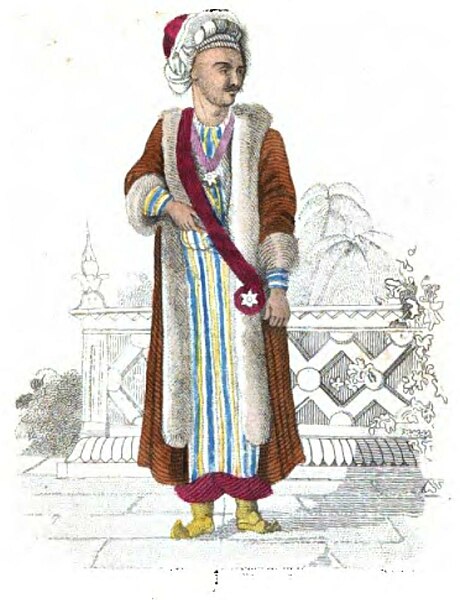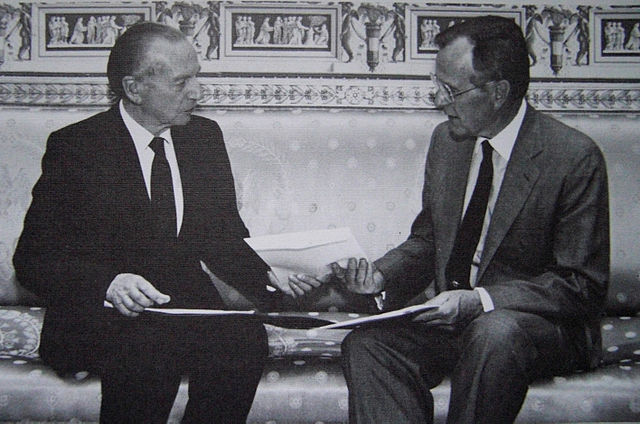Excellency is an honorific style given to certain high-level officers of a sovereign state, officials of an international organization, or members of an aristocracy. Once entitled to the title "Excellency", the holder usually retains the right to that courtesy throughout their lifetime, although in some cases the title is attached to a particular office and is held only during tenure of that office.
Their Excellencies the Lords Justices of England, for the administration of the Government during the absence of the King by Robert White.
An ambassador is an official envoy, especially a high-ranking diplomat who represents a state and is usually accredited to another sovereign state or to an international organization as the resident representative of their own government or sovereign or appointed for a special and often temporary diplomatic assignment. The word is also used informally for people who are known, without national appointment, to represent certain professions, activities, and fields of endeavor, such as sales.
Ambassador Daoud Zadour of Persia
Arrival of the English Ambassadors by Vittore Carpaccio, painted between 1495 and 1500—though ostensibly part of a series of paintings on the life of Saint Ursula, this actually depicts the developing diplomatic practices of the Republic of Venice in the painter's own time
Before an ambassador takes office, their credentials must be accepted, such as when South African Ambassador Harry Schwarz handed his credentials to U.S. President George H. W. Bush in 1991.
Maria-Pia Kothbauer, Princess of Liechtenstein and ambassador extraordinary and plenipotentiary to the Czech Republic, presenting her credentials to Václav Klaus





